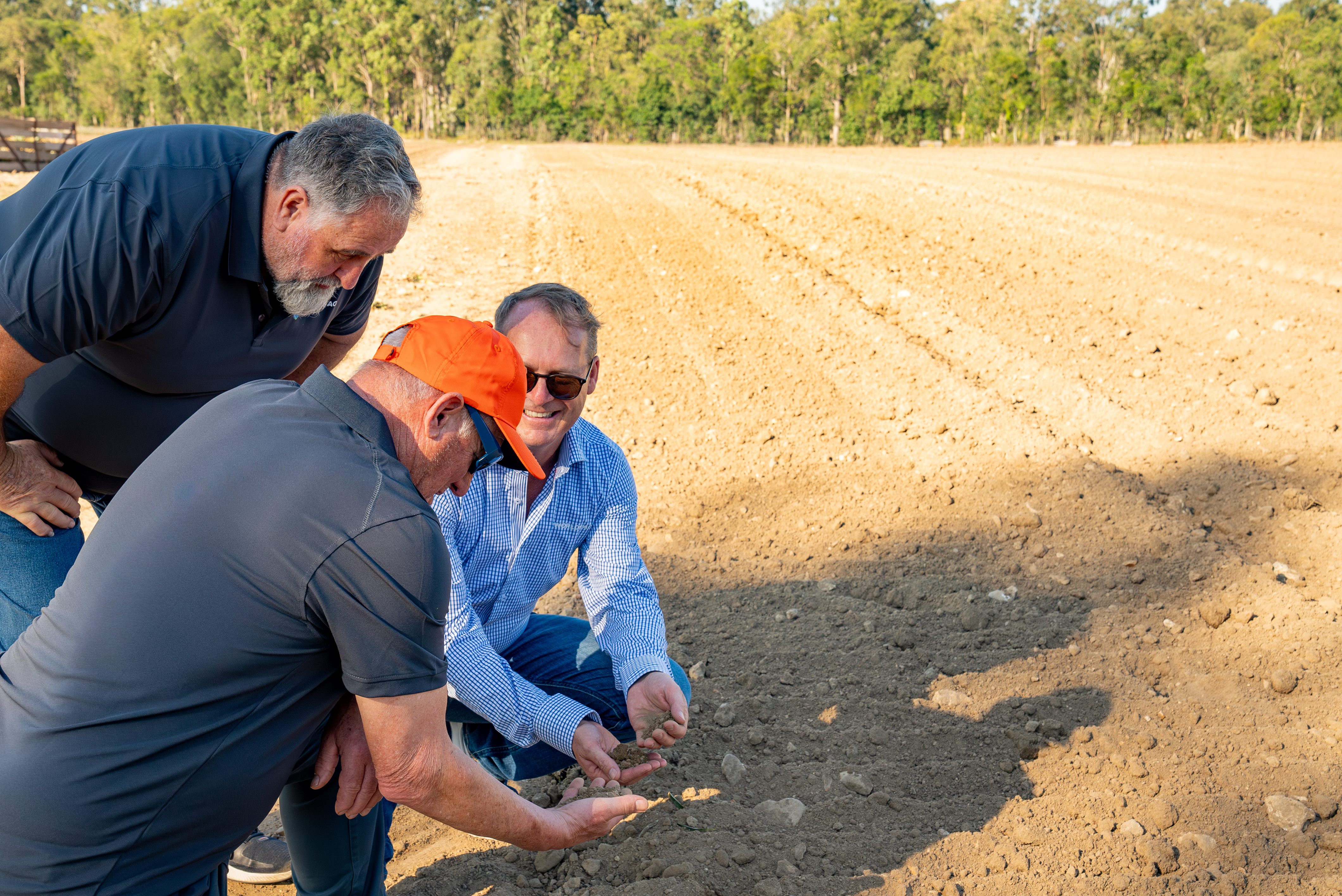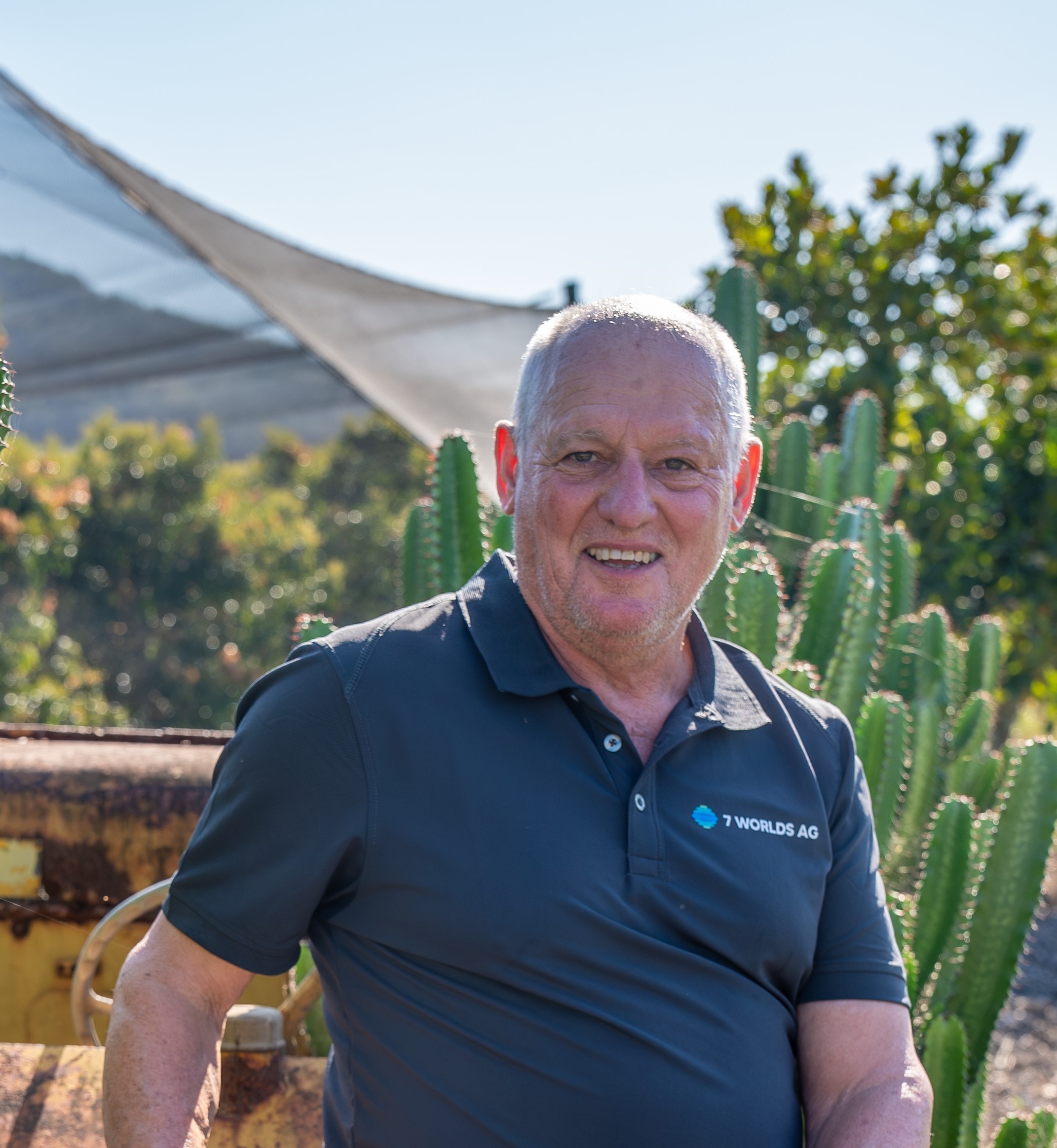From the prairies of Manitoba in central Canada to the farming regions of southern Australia, Orville Hildebrand has built a diverse career in agriculture.
And when it comes to crop protection, particularly in horticultural crops, few can match Orville’s depth of knowledge and experience, stretching from research and development right through to practical application over more than three decades.
Back in 1981, he and two mates arrived in Australia as backpackers, finding their way to the Barossa Valley where they went grape picking.
“After travelling through Europe and North America, I landed here as a 24-year-old with a degree in physical education from the University of Manitoba,” he says.
One of nine children growing up on a family farm on the Manitoba prairie provinces adjoining the US border, Orville had no idea about the career and life path he would take.
“In so many ways, I had an idyllic childhood growing up in a big family on a mixed farm,” Orville says.
“We grew cereals, legumes and oilseed crops, alfalfa, beef cattle, pigs and chickens.
“My father made sure there were always plenty of farm jobs to keep us kids busy and I’ll never forget the early starts hand milking cows before and after school.
“Summers were spent on the tractor cultivating the summer fallow (before direct drilling was practised), hay making and rogueing wild oats to make sure our seed crops gained certification.
“The operation was all led by dad who was quite a progressive farmer in those days, growing a variety of certified seed crops and among the first farmers in the area to adopt direct drilling and the use of trifluralin in the ’70s.”
After several years enjoying the Australian lifestyle and eager to escape six or seven months of snow and ice every year in Manitoba, Orville enrolled in a Bachelor of Agricultural Science degree at the University of Adelaide’s Waite campus in 1984.
But those early days of pulling weeds back home must have had a lasting impact on Orville as he focused on herbicide cross resistance in his honours year under the supervision of Stephen Powles.

It was a timely step for Orville as Stephen was one of the first researchers to recognise the threat posed by herbicide resistance.
Subsequently, he became Emeritus Professor Stephen Powles, one of the world’s leading authorities on the subject.
Orville says he was tempted to continue studying for a doctorate in herbicide resistance, but he needed a real job.
And so began his working began in 1989 at Agchem Pty, a small South Australian crop protection manufacturer and distributor.
Since those days, Orville has worked for almost every major crop protection and fertiliser supplier and a fair share of corporate and independent dealers in Australia.
He’s been at the coalface with growers in product introduction and development, research, agronomy and advisory roles over the past three decades in his home state of South Australia and elsewhere in Australia.
For four years, Orville played a key role at companies such as Peracto and Staphyt, where he managed regional contract research conducted for Hort Innovation and multinational companies, primarily focused on residue studies and registration trials in horticultural crops.
This proved to be the perfect stepping stone into Grochem, now known as 7 Worlds Ag, where Orville gets to combine his passion for learning with the freedom to find new ways to manage pests and diseases in the full suite of horticultural crops.
“Between chief executive Ben Coombe and me, we are constantly on the search for new and existing compounds and technologies from around the globe, for their fit in our markets and cropping programs,” he says.
“As growers look to move away from conventional chemistry in favour of integrated pest and weed management, we believe there are lots of opportunities for 7 Worlds Ag to become a key supplier of softer chemistry sourced from nature that is not only effective but also safer to beneficial insects such as bees, ladybirds and predatory mites.
“Whether it’s applying new herbicides on brussels sprouts, looking at a new product in rice, or talking to growers in the field, it is rewarding to be shaping our product range to meet the changing needs of the industry and ensuring growers remain competitive in local and overseas markets.”




